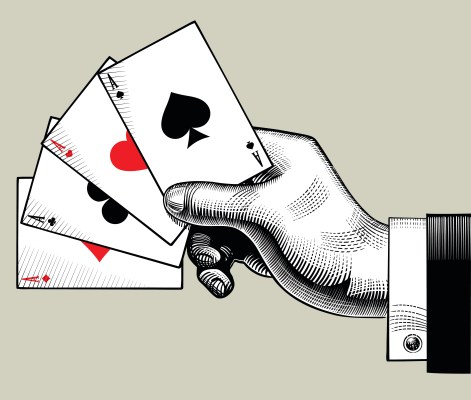Libratus, Carnegie Mellon’s poker-playing AI, is damn good. It easily routed four of the world’s best poker players back in January over 120,000 hands of No-Limit Texas Hold-um. So it comes as no surprise that a team of venture capitalists, entrepreneurs and engineers playing against Lengpudashi, Libratus’ bigger, badder brother, would face a similar fate. Plot twist: they lost, badly.
Now that’s not meant to be unfair to Alan Du, the VC and poker pro leading “Team Dragon” against Lengpudashi in this week’s Chinese exhibition match. The group’s approach was actually quite valid. Rather than treat Lengpudashi as a human and try to beat it with traditional strategy, Team Dragon went into the match with the aim of playing it like a machine. Unfortunately, it seems like a dash of game theory and an understanding of machine intelligence was of no real help during the match-up.
In a Bloomberg piece, Du related poker to venture capital in an effort to express his team’s preparedness. Yet each successive day of the five-day match, Team Dragon sunk deeper into a hole. This is because merely being knowledgeable about uncertainty isn’t enough to take on finely tuned machines in an environment to which they’ve already become accustomed.
Humans hold the advantage in startup investing because the ecosystem is too complex to model effectively. But if we found a way to do it, that system would be able to make macro bets that would seem nonsensical to humans making micro moves. Once machines are able to tilt the game in favor of their computational power, it’s pretty much game over for humans.
There’s a case to be made that the world’s foremost experts on machine learning and game theory might have stood a chance against the old Libratus, but Lengpudashi is even better. That said, I’d still pay good money to watch greats like Richard Sutton and Joseph Halpern take on Lengpudashi with a heck of a lot of intentionality and a strong grasp of reinforcement learning and managing uncertainty.
